
The Byrds were an American rock band formed in Los Angeles, California, in 1964. The band underwent multiple lineup changes throughout its existence, with frontman Roger McGuinn remaining the sole consistent member. Although their time as one of the most popular groups in the world only lasted for a short period in the mid-1960s, the Byrds are today considered by critics to be among the most influential rock acts of their era. Their signature blend of clear harmony singing and McGuinn's jangly twelve-string Rickenbacker guitar was "absorbed into the vocabulary of rock" and has continued to be influential.
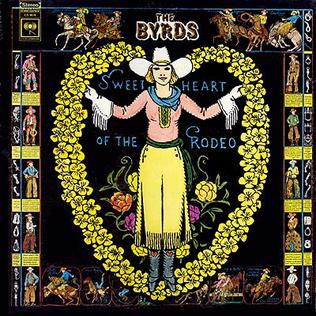
Sweetheart of the Rodeo is the sixth album by American rock band the Byrds and was released in August 1968 on Columbia Records. Recorded with the addition of country rock pioneer Gram Parsons, it became the first major album widely recognized as country rock and represented a stylistic move away from the psychedelic rock of the band's previous LP, The Notorious Byrd Brothers. The Byrds had occasionally experimented with country music on their four previous albums, but Sweetheart of the Rodeo represented their fullest immersion into the genre to that point in time. The album was also responsible for bringing Parsons, who had joined the Byrds in February 1968 prior to the recording of the LP, to the attention of a mainstream rock audience for the first time. Thus, the album is an important chapter in Parsons' personal and musical crusade to make country music fashionable for a young audience.
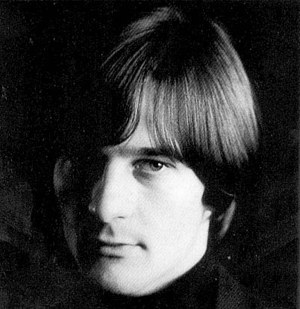
Harold Eugene Clark was an American singer-songwriter and founding member of the folk rock band the Byrds. He was the Byrds' principal songwriter between 1964 and early 1966, writing most of the band's best-known originals from this period, including "I'll Feel a Whole Lot Better", "She Don't Care About Time", "Eight Miles High" and "Set You Free This Time". Although he did not achieve commercial success as a solo artist, Clark was in the vanguard of popular music during much of his career, prefiguring developments in such disparate subgenres as psychedelic rock, baroque pop, newgrass, country rock, and alternative country. He was inducted into the Rock and Roll Hall of Fame in 1991 as a member of the Byrds.

The Byrds' Greatest Hits is the first greatest hits album by the American rock band the Byrds and was released in August 1967 on Columbia Records. It is the top-selling album in the Byrds' catalogue and reached number 6 on the Billboard Top LPs chart, but failed to chart in the UK.
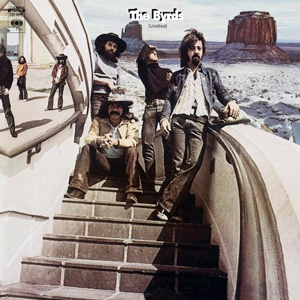
(Untitled) is the ninth album by the American rock band the Byrds and was released in September 1970 on Columbia Records. It is a double album, with the first LP featuring live concert recordings from early 1970, and a second disc consisting of new studio recordings. The album represented the first official release of any live recordings by the band, as well as the first appearance on a Byrds' record of new recruit Skip Battin, who had replaced the band's previous bass player, John York, in late 1969.

The Byrds is a four-CD box set by the American rock band the Byrds. It features music that had previously been released between the mid-1960s and early 1970s, along with a number of previously unreleased tracks and some new recordings from 1990. The box set was issued on October 19, 1990 by Columbia/Legacy and reached number 151 on the Billboard albums chart.

"Lay Lady Lay", sometimes rendered "Lay, Lady, Lay", is a song written by Bob Dylan and originally released in 1969 on his Nashville Skyline album. Like many of the tracks on the album, Dylan sings the song in a low croon, rather than in the high nasal singing style associated with his earlier recordings. The song has become a standard and has been covered by numerous bands and artists over the years.
"All I Really Want to Do" is a song written by Bob Dylan and featured on his Tom Wilson-produced 1964 album, Another Side of Bob Dylan. It is arguably one of the most popular songs that Dylan wrote in the period immediately after he abandoned topical songwriting. Within a year of its release on Another Side of Bob Dylan, it had also become one of Dylan's most familiar songs to pop and rock audiences, due to hit cover versions by Cher and the Byrds.
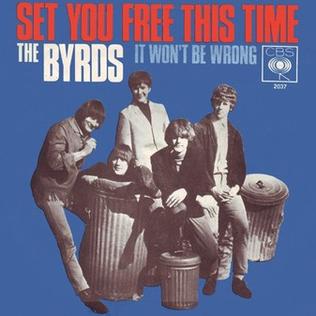
"Set You Free This Time" is a song by the American folk rock group the Byrds, written by band member Gene Clark. It was first released in December 1965 on the group's Turn! Turn! Turn! album, and later issued as a single in January 1966.
"Turn! Turn! Turn!", or "Turn! Turn! Turn! ", is a song written by Pete Seeger in the late 1950s and first recorded in 1959. The lyrics – except for the title, which is repeated throughout the song, and the final two lines – consist of the first eight verses of the third chapter of the biblical Book of Ecclesiastes. The song was originally released in 1962 as "To Everything There Is a Season" on folk group the Limeliters' album Folk Matinee, and then some months later on Seeger's own The Bitter and the Sweet.

There Is a Season is a four-CD and one DVD box set by the American rock band the Byrds that was released on September 26, 2006 by Columbia/Legacy. It comprises 99 tracks and includes material from every one of the band's twelve studio albums, presented in roughly chronological order. The bonus DVD features ten clips of the Byrds lip-synching their hits on television programs between 1965 and 1967. Upon release, the box set failed to reach the Billboard 200 chart or the UK Albums Chart. There Is a Season supplants the band's earlier box set, The Byrds, which was released in October 1990.

"So You Want to Be a Rock 'n' Roll Star" is a song by the American rock band the Byrds, written by Jim McGuinn and Chris Hillman and included on the band's 1967 album, Younger Than Yesterday. The song was inspired by the manufactured nature of the Monkees and was released as a single on January 9, 1967, reaching number 29 on the Billboard Hot 100, but failing to chart in the United Kingdom.
The Byrds were an American rock band that were formed in Los Angeles, California in 1964.
"Triad" is a song written by singer-songwriter David Crosby in 1967 about a ménage à trois. It was recorded by the Byrds that year, while Crosby was a member of the band, but their version went unreleased at the time and was not issued until twenty years later. Jefferson Airplane released a version of the song in 1968 on their Crown of Creation album and a live version performed by Crosby was included on Crosby, Stills, Nash & Young's 4 Way Street in 1971.

"It Won't Be Wrong" is a song by the American folk rock band the Byrds, which appeared as the second track on their 1965 album, Turn! Turn! Turn! It was also coupled with the song "Set You Free This Time" for a single release in 1966, resulting in "It Won't Be Wrong" charting at number 63 on the Billboard Hot 100. The song was written by Byrds band member Jim McGuinn and his friend Harvey Gerst in 1964.

"Have You Seen Her Face" is a song by the American rock band the Byrds, written by the group's bass player Chris Hillman and included on their 1967 album Younger Than Yesterday.

"Lady Friend" is a song by the American rock band the Byrds, written by band member David Crosby and released as a single on July 13, 1967. The single reached number 82 on the Billboard Hot 100, but failed to chart in the United Kingdom. "Lady Friend" is the only song penned solely by Crosby to appear on the A-side of a Byrds' single.

Never Before is a compilation album by the American rock band the Byrds, consisting of previously unreleased outtakes, alternate versions, and rarities. It was initially released by Re-Flyte Records in December 1987 and was subsequently reissued on CD in 1989, with an additional seven bonus tracks.
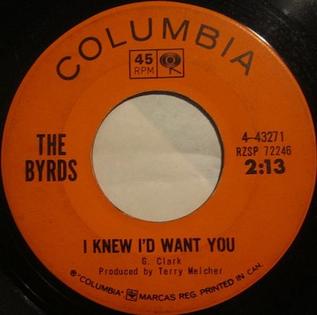
"I Knew I'd Want You" is a song by the folk rock band the Byrds, written by band member Gene Clark, and first released as the B-side to their 1965 debut single, "Mr. Tambourine Man". It was also later included on their debut album, Mr. Tambourine Man.
"Here Without You" is a song written by Gene Clark that was first performed on the Byrds' 1965 debut album Mr. Tambourine Man. It was later covered by other artists, including Reigning Sound and Richard Thompson.














